 Ok, I know, I am probably not the one to say anything, but I am getting annoyed by the fact that wearables are now defined by watches. It seems that when you are now considering new technology, it really just is the same technology, but in a watch. To me the whole thing has probably come to a climax with Will.i.am’s watch that was presented at Dreamforce yesterday. The whole idea of having to wear a jacket with a battery pack to make sure your watch will actually work for 2.5 days is incredibly stupid. (Even though charging through touching the sleeve sounds pretty cool.) Just as a backpack that will count your steps and weigh you. Whoever thought of this? I mean, honestly. Yes, I understand that there are millions of people wearing watches and that it can be pretty convenient to see on your watch whether you need to ignore yet another call or message. But a backpack that counts your steps? Couldn’t the watch itself do that? Or leave it to the phone in your pocket? And then, I haven’t started about battery life yet. A phone should be something that you set and forget. You wear it around your wrist for the convenience of knowing the time, and perhaps doing some other fancy things. But you really don’t want to have an item that you rely on to tell you when to be where and then find out that you forgot to charge it that one night and subsequently miss your train, your meeting with your boss and getting fired in the process. Ok, that might be putting it a bit too strongly, but in my opinion a watch should at least be capable of being on for a while. The Pebble lasts a week on a charge, so that will at least allow you to be at work on time, perhaps leaving you late for church on Sunday when you forget to charge it.
Ok, I know, I am probably not the one to say anything, but I am getting annoyed by the fact that wearables are now defined by watches. It seems that when you are now considering new technology, it really just is the same technology, but in a watch. To me the whole thing has probably come to a climax with Will.i.am’s watch that was presented at Dreamforce yesterday. The whole idea of having to wear a jacket with a battery pack to make sure your watch will actually work for 2.5 days is incredibly stupid. (Even though charging through touching the sleeve sounds pretty cool.) Just as a backpack that will count your steps and weigh you. Whoever thought of this? I mean, honestly. Yes, I understand that there are millions of people wearing watches and that it can be pretty convenient to see on your watch whether you need to ignore yet another call or message. But a backpack that counts your steps? Couldn’t the watch itself do that? Or leave it to the phone in your pocket? And then, I haven’t started about battery life yet. A phone should be something that you set and forget. You wear it around your wrist for the convenience of knowing the time, and perhaps doing some other fancy things. But you really don’t want to have an item that you rely on to tell you when to be where and then find out that you forgot to charge it that one night and subsequently miss your train, your meeting with your boss and getting fired in the process. Ok, that might be putting it a bit too strongly, but in my opinion a watch should at least be capable of being on for a while. The Pebble lasts a week on a charge, so that will at least allow you to be at work on time, perhaps leaving you late for church on Sunday when you forget to charge it.
 Do I hate watches? Not really. Even though I haven’t really worn one for years. Do I hate smart watches? Nope, not that either. In fact, some 20 years ago, when Seiko released the Message Watch, I was one of the first to own one. Even though reception in my area was flaky to say the least and there weren’t many useful services. But man, did it feel cool to have that. So, 20 years later, we really are just back at that stage, albeit with bigger full color and touch displays. Great.
Do I hate watches? Not really. Even though I haven’t really worn one for years. Do I hate smart watches? Nope, not that either. In fact, some 20 years ago, when Seiko released the Message Watch, I was one of the first to own one. Even though reception in my area was flaky to say the least and there weren’t many useful services. But man, did it feel cool to have that. So, 20 years later, we really are just back at that stage, albeit with bigger full color and touch displays. Great.
But whatever happened to real progress? Don’t knock me here, but honestly, Google Glass was a cool wearable that we don’t really hear about anymore. At least it was something that really added to your every day experience. Though you would probably need a backpack of batteries to have it work throughout the day. Where is the real innovation here? Another display on your wrist is not going to change your world. So, even though I might end up with a smart watch again at some point -if I find a useful one- I am really just looking forward to the next step. What will it be? Levi’s smart pants? The i501.0?
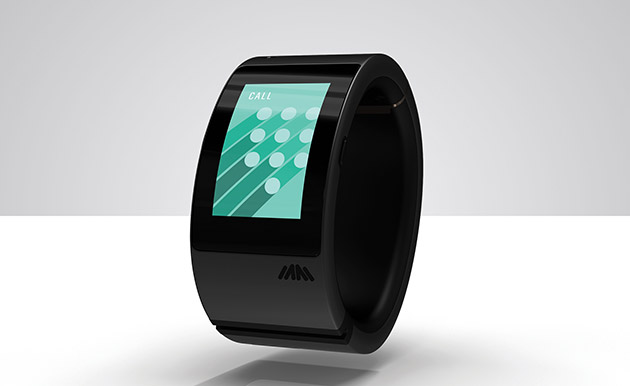
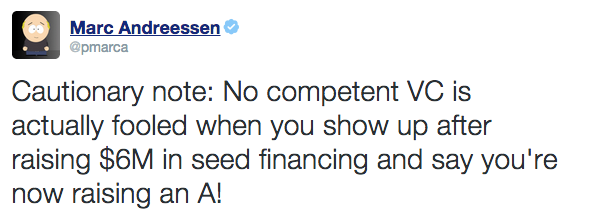
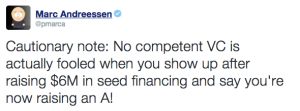



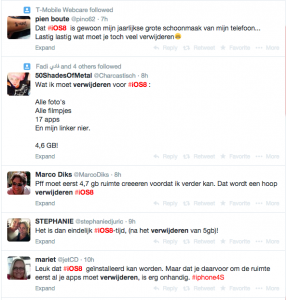

 Ik heb altijd gedacht dat de Volkswagen up! gewoon een leuk klein autootje was. Maar de nieuwe reclamereeks voor de Volkswagen up! heeft mij toch even aan het denken gezet. In de reclame wordt een nieuw up! abonnement aangeprezen, waarmee je de up! kunt rijden tegen een redelijk laag maandbedrag. Maar aan het einde komt er ineens een opvallende twist in de reclame.
Ik heb altijd gedacht dat de Volkswagen up! gewoon een leuk klein autootje was. Maar de nieuwe reclamereeks voor de Volkswagen up! heeft mij toch even aan het denken gezet. In de reclame wordt een nieuw up! abonnement aangeprezen, waarmee je de up! kunt rijden tegen een redelijk laag maandbedrag. Maar aan het einde komt er ineens een opvallende twist in de reclame.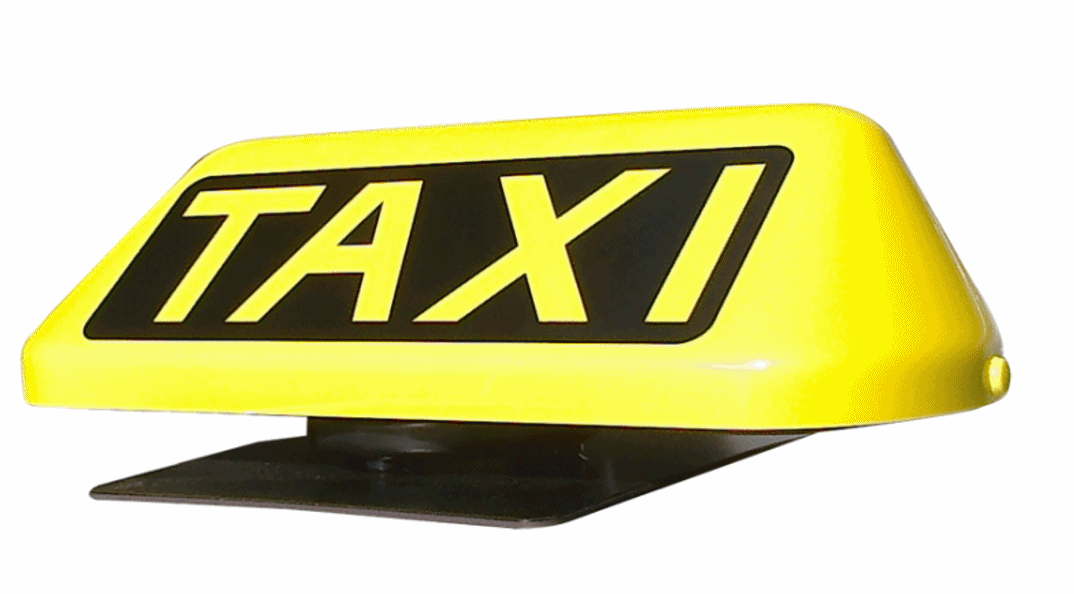


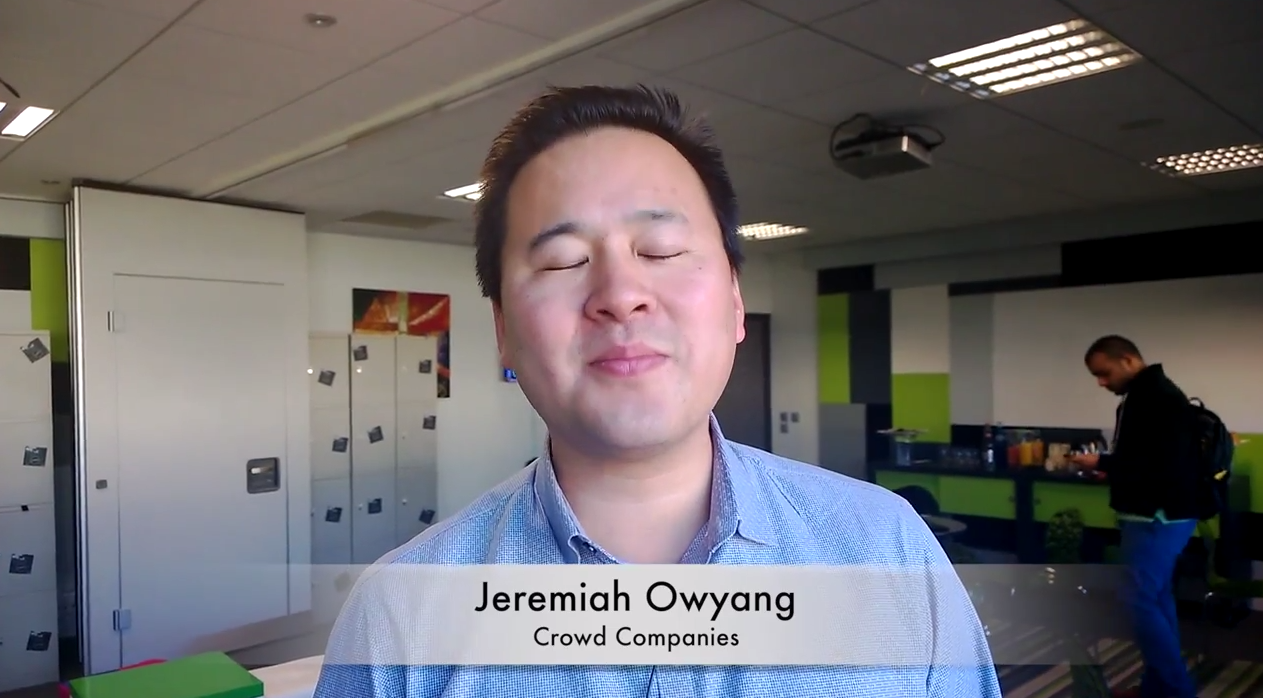
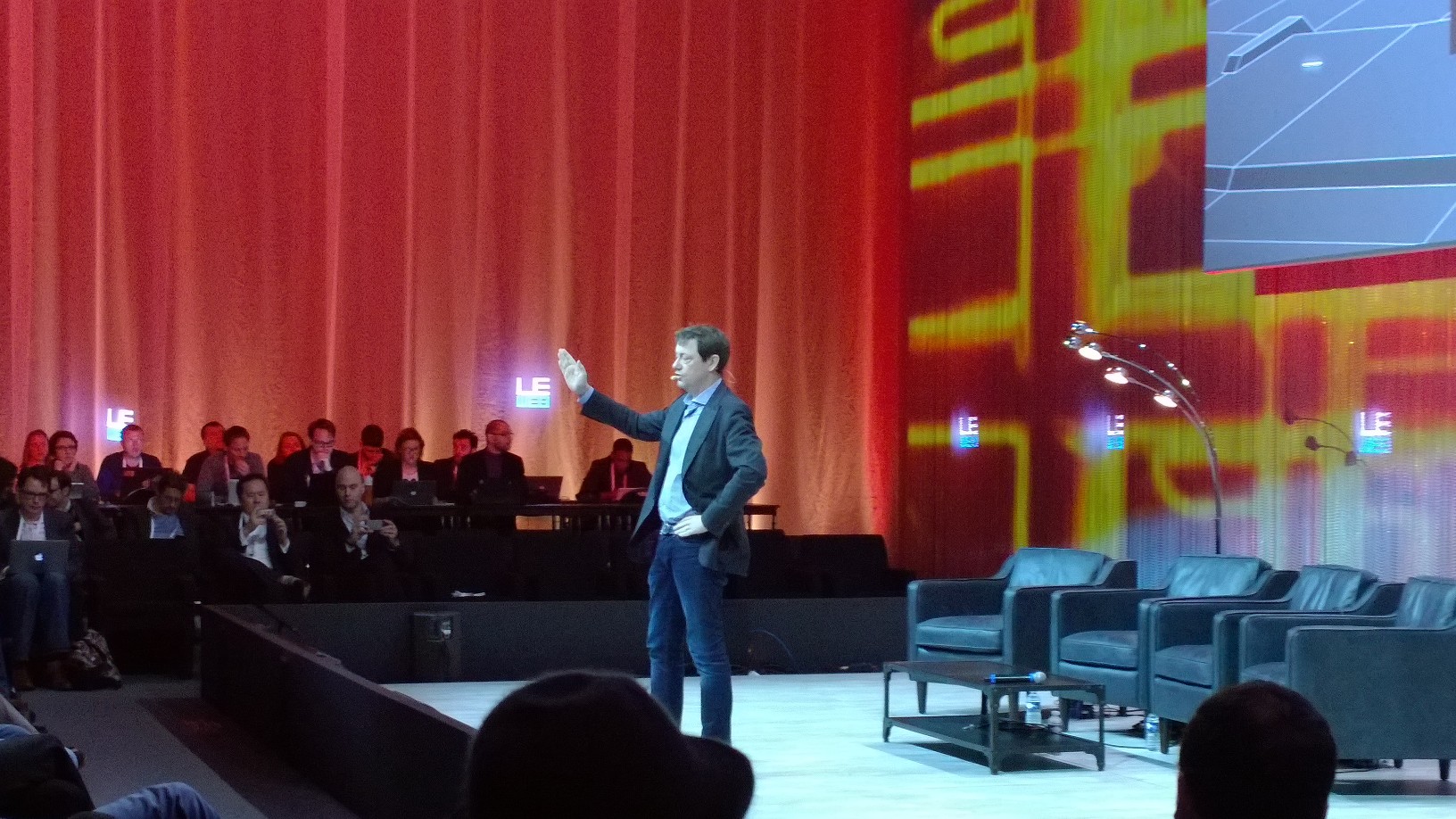


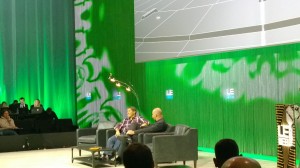

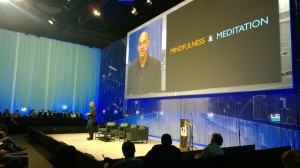 Yes, it is the start of LeWeb. I will be enjoying my time here. Hope you will as well. There are a number of speakers that I am looking forward for. If you don’t want to wait to see what I am seeing and hearing here, you can follow the live stream yourself. Check it out at
Yes, it is the start of LeWeb. I will be enjoying my time here. Hope you will as well. There are a number of speakers that I am looking forward for. If you don’t want to wait to see what I am seeing and hearing here, you can follow the live stream yourself. Check it out at  I love the future. I have loved it ever since I started reading. Technology is shaping our future fast. Back in 1985 I wrote my first computer program. Back in 1994 I launched my first website and I have been working with organizations on integrating new technology ever since.
I love the future. I have loved it ever since I started reading. Technology is shaping our future fast. Back in 1985 I wrote my first computer program. Back in 1994 I launched my first website and I have been working with organizations on integrating new technology ever since.